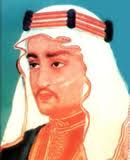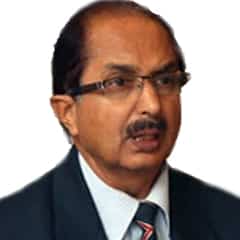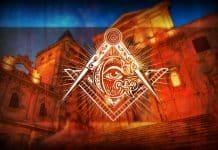by Asif Haroon
Islam was brought into Indian subcontinent in 712 by Muhammad bin Qasim after he conquered Sindh ruled by Hindu Raja Dahir. His arrival sowed the seeds of antagonism between the Hindus and Muslims. India remained under the rule of Muslim Sultans and Mughal kings from 998 till 1858. The Mughals left behind an ineradicable impression on the political, administrative and educational psyche of the people of South Asia. Mughal Empire remained at the pinnacle of glory till the death of Emperor Aurangzeb in 1707 and thereon it began to wane. British East India Company under the guise of a trading setup took advantage of the decaying society of India under the rule of last vestiges of the Mughals and embarked upon a comprehensive strategy to take over the control of the country. The British traders got aligned with Hindus since they viewed Muslims as their biggest enemies. Over a period of time the British did shatter the political supremacy of the Muslims but they neither had the potential nor the ability to destroy the religious-cultural integrity of Muslims.

Lord Macaulay opined that until and unless the spiritual and cultural heritage of the Muslims was broken by replacing their ancient education system and culture, it will not be possible to subjugate them in true sense. He had rated the education in Madaris matching Oxford. Taking his advice seriously, Persian language was eliminated and Persian as a medium of instruction was substituted with English in 1835 as an official language so as to stamp out culture of Muslims.
Educational system was also replaced with British oriented system in 1840 with a view to pollute Islamic religion, culture and civilization. The British established Fort William College and string of English medium schools. Notwithstanding their positive contributions towards the growth of education, their main objective was to colonize the minds of the subjects and to have a trained force to run the administrative machinery and government offices through well conceived system of administration. The cultural harmony achieved during the sanguine rule of Mughals was dissolved by the white masters.
Likewise, the Madaris which produced both jurists and administrative cadres of the government were pulverized. Demolition of Madaris and Persian language and making English compulsory for seeking jobs rendered the educated Muslims uneducated and jobless. Liberalism, secularism, western technology and British products were promoted in the name of modernism and social progress. In their bid to inculcate western ideas, the white masters allowed free entry to Christian missions into India. Those missionaries formed an important channel by which western values and western knowledge were poured into India and spread through establishment of Mission Stations all over the country.
Emphasis on English as the medium of instruction not only restricted modern education to the upper and upper middle classes residing in cities and kept the great majority of rural based people deprived, but also created a linguistic and cultural gulf between the educated and less educated. This gulf has widened and become unbridgeable in both India and Pakistan. By introducing English in India, the British colonials left behind a breed deeply ingrained with western values. That breed continues to dominate the corridors of power in both India and Pakistan till to date.
In 1908 a minister of British parliament stated, ‘As long as the Muslims are in possession of Quran, they will obstruct their path; we should endeavor to pull out Quran from the lives of Muslims’. The British wooed the Hindus to become their natural allies and to jointly undermine the Muslims and to run down Islam. Host of steps were taken to ruin the Muslims politically, economically and socially and to keep them educationally backward. It was as a consequence to shattering of Muslims, both physically and mentally that the Indian Muslims made an abortive attempt in 1857 to re-establish their lost kingdom. The Muslims who were in the vanguard of war of independence became the main targets of revenge.
In order to crush the power of Muslims once for all, the British made no distinction between the rebels and the faithful, between man and woman and old or infant. All stood condemned. Western historians have dilated upon the ghastly and grotesque acts of British Army. The soul wrenching diabolical atrocities committed are too painful to recount. The British massacred and ruined the Muslims in a manner whereby they were unable to raise their head again. They inflicted immeasurable pains on the Muslims and did everything to obliterate them from the society. They were humiliated and their cultural institutions systematically destroyed.
No reprisal actions were meted out to the Hindus although it was amply proved subsequently that the revolt was a joint Muslim-Hindu effort. It is a different matter that midway when the tide became unfavorable the Hindus backed out. The Muslims were discriminated against, debarred from all government jobs and made landless. The Muslims found their prestige gone, their laws replaced, their language shelved and their education shorn of its monetary value.
While the great majority of Muslims of India remained deprived of modern language, a tiny elite class reaped the benefits by opting to learn English. The British succeeded in creating a class of interpreters between them and the millions whom they governed; a class of persons Indian in blood and color, but English in taste, in opinions, in morals and in intellect. This class of seculars which remained beholden to former masters and now to USA has ruled Pakistan for over 63 years. Gen Ziaul Haq was the only one who espoused Islamic teachings but is censured most vehemently by secular forces.
The British rule made a deep impact on a segment of society – mostly upper and middle classes – who blindly imitated western life and culture. They copied European manners and customs and became European in every way except blood. These Europeanized Muslims got oblivious of their roots and strained their lungs to champion British reforms. It was this segment that remained at loggerheads with the Islamists after the creation of Pakistan and kept the society perpetually divided.
The British system of administration and legal system was designed to maintain law and order and to collect taxes from the people and not to protect them. Same way, the highly expensive, time consuming and complex legal system in English language added to the miseries of masses rather than providing succor and relief. This was yet another legacy to which the people of Pakistan have remained agonizingly enchained. Great majority viewed the inherited system too cumbersome, too tedious and too iniquitous to deliver cheap and speedy justice.
The British introduced democracy and parliamentary form of government based on western model through a number of legislations and conducted 1937 and 1946 elections on the basis of 1935 Act. The westernized ruling elite imposed the same system upon the Muslims of Pakistan whose outlook and ethos was essentially conservative and religious. In fact, British imperialism resulted in social, economic and moral stagnation which persists in spite of the freedom struggle and over six decades of freedom.
The British legacy has sharpened secular-Islamist divide in free Pakistan. While Pakistan has been named as Islamic Republic but there is little in practice which qualifies it for this name. We in Pakistan call ourselves Muslims but a sizeable majority neither can read Quran nor know prayers. A minority which follows the principles of Islam are dubbed as obscurantist, bigoted and fundamentalists. The ones advocating secularism belong to affluent class and monopolize government departments, lands, industries, banks and businesses.
Ultra liberals denounce two-nation theory and ideology of Pakistan based on Islam. They advocate modernism under the garb of enlightened moderation. Systems inherited from the British are stubbornly defended and presented as the best cure for all our ills. The rulers have purposely deprived the masses from availing education as a result of which 42% are still illiterate. Only 30% people are fortunate to acquire both worldly and religious education. No effort has ever been made to revive spiritualism or to stem the downslide of our morals. Our educational institutions lay no stress on morality, Islamic values and character building. Mullahs in mosques are mostly uneducated and no effort has been made to further their religious education.
Ulema and religious teachers rather than spreading teachings of Islam and creating better awareness have divided Islam into Fiqahs. They have bred intolerance and extremism in the name of Islam. Mini-mind rulers having sold their souls to the imperialist USA are neck-deep busy in loot and plunder. They are encouraging the youth to make short cuts and indulge in corrupt and immoral practices to become rich overnight. They have left the nation of over 170 millions rudderless and utterly disillusioned. Lack of education and ignorance and direction has given birth to host of diseases which afflict the body of Pakistan. Today in this unfortunate Land of the Pure, there is no leader among the seculars and Islamists to guide and show the right path and make this nation healthy and wealthy both spiritually and materially.
About the writer: Asif Haroon is a defence analyst. Email:asifharoon7751@yahoo.com

Brig Asif Haroon Raja an Member Board of Advisors Opinion Maker is Staff College and Armed Forces WarCoursequalified, holds MSc war studies degree; a second generation officer, he fought epic battle of Hilli in northwest East Bengal during 1971 war, in which Maj M. Akram received Nishan-e-Haider posthumously.
He served as Directing Staff Command & Staff College, Defence Attaché Egypt and Sudan and Dean of Corps of Military Attaches in Cairo. He commanded the heaviest brigade in Kashmir. He is lingual and speaks English, Pashto and Punjabi fluently.
He is author of books titled ‘Battle of Hilli’, ‘1948, 1965 & 1971 Kashmir Battles and Freedom Struggle’, ‘Muhammad bin Qasim to Gen Musharraf’, Roots of 1971 Tragedy’; has written number of motivational pamphlets. Draft of his next book ‘Tangled Knot of Kashmir’ is ready.
He is a defence analyst and columnist and writes articles on security, defence and political matters for numerous international/national publications.
ATTENTION READERS
We See The World From All Sides and Want YOU To Be Fully InformedIn fact, intentional disinformation is a disgraceful scourge in media today. So to assuage any possible errant incorrect information posted herein, we strongly encourage you to seek corroboration from other non-VT sources before forming an educated opinion.
About VT - Policies & Disclosures - Comment Policy



